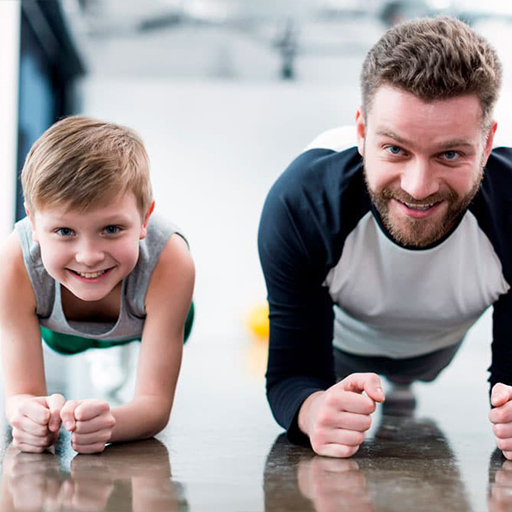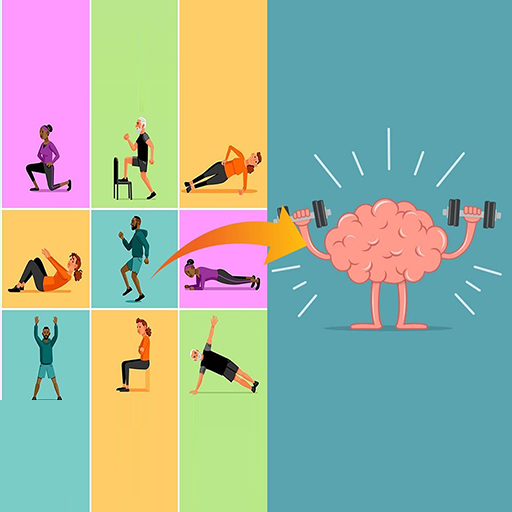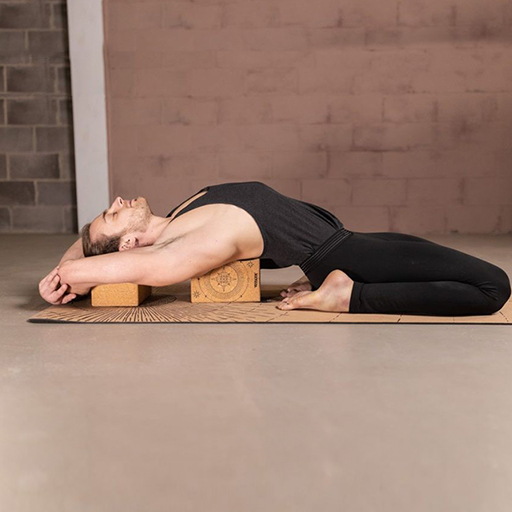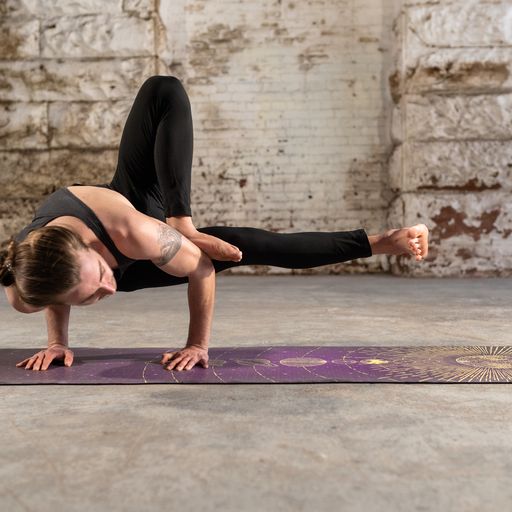Everyone knows that regular physical activity is good for the body, but there is growing evidence of how physical exercise helps improve your mental health. For example, studies show that physical exercise can help reduce depression, anxiety and stress. So, this blog helps you learn some of the best mental health exercises and their benefits.
Table of Contents
- Why Is Exercise Good For Mental Health?
- 8 Benefits of Exercise for Your Mental Health
- 5 Best Exercises for Mental Health
-
- Yoga
- Pilates
- Bodybuilding
- Swimming
- Running or Walking
- Concluding How Physical Exercise Helps Mental Health
Why Is Exercise Good For Mental Health?
In a reference study, 23 healthy women aged between 60 and 70 did an hour of walking three times a week, along with stretching and flexibility exercises.
After six months, there were improvements in attention, memory, agility and mood patterns compared to the control group with 17 sedentary women.
According to the conclusions, participation in a physical activity program is a vital non-drug alternative for cognitive improvement in elderly women.
The evidence that physical exercise can interfere with cognitive performance occurs in three aspects:
- With the increase in the levels of neurotransmitters and changes in brain structures in the comparison between physically active and sedentary individuals
- By the cognitive improvement observed in individuals with mental impairment compared to healthy individuals
- In the limited improvement obtained by elderly individuals due to a lower mental/attentional flexibility compared to a young group
Exercise improves cerebral blood circulation (the flow of blood in your brain), which can alter the synthesis and degradation of neurotransmitters. This is considered the direct action of physical activity in increasing cognitive processing speed.
In addition to this direct action, indirect mechanisms can contribute to mental health, such as lowering blood pressure, reducing blood triglyceride levels and inhibiting platelet aggregation.
It is believed that physical exercise could increase cerebral blood flow and, consequently, oxygen and other energy substrates, thus providing an improvement in cognitive function.
In addition, the feeling of well-being caused by physical exercise with the increase in concentrations of serotonin and ß-endorphins cannot be ruled out.
Thus, using physical exercise as an alternative to improve cognitive function is a relatively cheap and accessible method and can be presented to a large part of the public as a health operator.
Now let’s see how physical activity improves various aspects of your mental health.
Related: Mental Health Awareness Day For Fitness & Combat Sports!
Physical Activity and Stress Reduction

Regular physical activity is one of the best ways to prevent various diseases and promote health. A direct correlation exists between physical activity and relaxation.
Some people relax by engaging in major motor activities such as sports, running or physical exercise, while others prefer breathing exercises and progressive relaxation to relieve stress.
In addition to releasing endorphins in the brain, physical activity helps to relax muscles and relieve tension. With the body less tense, the mind starts to feel better.
Physical Activity and Depression
Physical exercise is recognized as an essential ally in fighting depression in mild and moderate cases. Physical activity provides a distraction from stressful stimuli, in addition to giving the patient greater control over their body and his life. Not to mention the opportunity for social interaction by socializing with other people.
There are also biological factors related to the effect of endorphin, a substance generated by exercise that can reduce the sensation of pain or produce a state of well-being. Physical activity associated with treatment can also promote improvements in the production of brain monoamines, such as serotonin and norepinephrine.
The most indicated exercises to prevent depression are walking and running (if it confuses you, here’s more on running vs walking). Because they are aerobic exercises, they facilitate the production of brain monoamines and promote psychosocial effects that reduce the symptoms of depression.
It is important to remember that exercise will be even more effective if it is enjoyable to practice, non-competitive, predictable and rhythmic.
Its intensity should be between 70{317a7769e272dec17b69bda26c6a5a4c5e6799efcd8a85f72cb552b76862c2b9} and 85{317a7769e272dec17b69bda26c6a5a4c5e6799efcd8a85f72cb552b76862c2b9} of the individual’s maximum aerobic capacity, and it should be practiced three to five times per week, lasting 20 to 60 minutes.
However, studies also show that anaerobic exercise can be more readily accepted by people who suffer from depressive disorders, as aerobic activities can be very vigorous.
Physical Activity in the Prevention of ADHD and PTSD

In addition to relieving stress and improving symptoms of depression, regular exercise also aids in secondary prevention in patients with attention deficit hyperactivity disorder (ADHD) and post-traumatic stress disorder (PTSD).
In the case of ADHD, exercising regularly is one of the most effective ways to reduce symptoms and improve levels of concentration, motivation, memory, and mood.
The immediate increase in dopamine, norepinephrine and serotonin levels caused by physical activity affects focus and attention, acting in the same way as drugs such as Ritalin and Adderall.
For patients with PTSD, exercise can help the nervous system respond to the immobilization stimulus that characterizes this disorder. Diverting attention to physical sensations as the body moves can gradually improve the patient’s mental state.
Therefore, the most relevant exercises are the ones that involve crossed movements of the limbs, such as walking (especially in the sand), running, swimming, weight training or dancing. Hiking and outdoor sports are also effective in reducing symptoms.
8 Benefits of Exercise for Your Mental Health

There are many reasons to exercise, such as to stay healthy or lose weight. But did it ever occur to you that exercise also helps your emotional and mental health?
Exercise is a potent “medicine” in that it naturally does what many scientists in the pharmaceutical world have been creating for decades.
Below are just a few of the many benefits of exercise to improve mental health.
1. Stress Reduction
Physical activity’s ability to slash mental and physical stress has been well documented. Going to the gym or exercising on home gym equipment can augment the release of various stress chemicals helpful for the brain in moderating stress.
Also, by regularly subjecting the body to physical stress, it is taught to recover and adapt to physical and mental stress.
2. Better Sleep
Due to the body’s need to recover after exercise, your brain will tire you sooner and help you sleep more soundly. The human body heals at night when we sleep, one of the most profound effects of recovery from workouts.
Without sleep, you won’t make much progress in your quest for fitness. Fortunately, your brain supports you in this area.
3. More Happiness
Exercise can contribute to improving the release of “happy chemicals” called endorphins, which work similarly to painkillers by interacting with neurotransmitters in your brain. Don’t worry; there is no addiction here.
These endorphins are released naturally through exercise and have been shown to reduce depression and increase feelings of euphoria after exercise. Moreover, exercising outdoors can also give you a boost of happiness.
4. Greater Self Confidence
Many factors make exercise a great thing. First, your social skills benefit from “training” that gives you more confidence in and out of the gym. You’ll likely be more confident in the gym environment, which will carry over to other aspects of your career and personal life.
Finally, you will also improve your positive image and how you express yourself while increasing your perception of your personal value.
5. Improved Cognitive Activity
It has been shown cognitive functions tend to decline as we continue to age. But regular physical activity at any age can affect the part of the brain that controls memory (hippocampus) and improve its functioning.
The same holds true for our ability to learn. Thanks to the same adaptations in the hippocampus, people who exercise regularly are more likely to retain new information.
6. Reduced Anxiety
Exercise has shown remarkable efficacy in reducing anxiety, even more than a bubble bath or a Swedish massage. It helps reduce feelings of stress because it not only releases endorphins but diverts your mind’s focus on something else, such as maintaining regular breathing.
7. More Energy
Exercise leads to increased blood flow through our body, helping carry oxygen and nutrients to our muscles and making us more energetic and alert. As noted above, with improved sleep quality comes improved energy, as our bodies get the rest they need.
Research reveals that people who exercise regularly are generally more productive in their professional and personal lives.
Finally, as people who exercise are more likely to make healthy nutritional choices, they also have the perception of having more energy and consuming less caffeine daily.
8. Developing and Strengthening Interpersonal Relationships
Wondering what makes this possible? People find quality time to spend together and keep each other motivated when they start exercising with a friend or partner.
Also, by feeling confident through exercise, people seek out other people with the same interests.
Consequently, they will begin to develop and strengthen interpersonal relationships, a basic human need. Belonging to a community significantly impacts mental health and the success of our goals.
5 Best Mental Health Exercises
People engaging in regular workouts tend to do so because it gives them an overwhelming sense of well-being. They feel more active throughout the day, sleep better at night, notice improvements in memory, feeling positive about themselves and their lives.
While singling out the best exercise for mental health is not that simple, as there are a host of variables involved in this equation, RDX Sports have compiled a list of some good mental health exercises. These involve:
1. Yoga

It is a practice encompassing physical, emotional, psychological and spiritual benefits. Each yoga pose contributes to activating specific body parts. Breathing promotes the unison of body and mind, bringing attention to the present moment.
One of the best things about yoga is that you can start practicing yoga right in your home. All you’d need for this is a quality yoga mat, a couple of yoga blocks, a yoga ball, and a yoga strap, and you’re good to go.
How It Helps?
Yoga transforms a mind dominated by desires, passions and needs from external factors. Practice teaches that the most important thing is within us; when we move our body synced with our breath, we focus on our interior. In the treatment of mental disorders, it helps exactly in the annulment of oppressive thoughts.
2. Pilates

Pilates refers to specific exercises performed on the floor or with proper equipment. Along with strengthening muscles, treating muscle pain and postural deviations, Pilates also works the union of body and mind. Breathing, as in yoga, is applied to each movement.
How It Helps?
Just like yoga, Pilates promotes concentration in the present. The practice also slows down the accelerated production of harmful hormones that raise stress and anxiety levels. One of the biggest positives is the tranquility that Pilates provides. Due to its low intensity, it is appropriate for those who have never exercised before.
3. Bodybuilding

Weight training is undoubtedly one of the most popular activities among people who exercise or want to start doing so. There are countless studies on the mental health benefits of aerobic exercise, but it is vital to know that lifting weights also reduces symptoms of many mental disorders.
How It Helps?
Regardless of how many weights you lift or how many times a week you do strength training, weight training can reduce symptoms of depression at almost the same rate as aerobic exercise. Lifting weights also improves mood, reducing melancholy and sadness.
4. Swimming

Most experts believe swimming is one of the most wholesome exercises, as it moves the entire body. It is also one of the most recommended sports by doctors and psychologists, serving a large target audience. It is accessible to all age groups and experience levels.
How It Helps?
It is an aerobic activity done in water, capable of reducing stress, helping regulate breathing, and providing a lot of energy.
That’s why experts recommend swimming every morning to make the most of the day. Physical exertion promotes blood circulation, turning swimming into an effective cardio workout.
5. Walking or Running

Running and walking can be done anywhere. For running, however, a little more postural knowledge and strengthening of the lower limbs are necessary.
Since it causes the most impact on the body, especially the lower back and knees, you need to make sure your body is capable of withstanding the intensity of the exercise before you start it.
On the other hand, walking is a more leisurely exercise that doesn’t have many demands beyond disposition, time and the right shoes.
How They Help?
As with all the physical exercises mentioned above, running and walking improve cognitive ability, dissipate negative emotions and work as a blood detoxifier, thus expelling harmful substances.
Related: Running vs. Walking – Which One Should You Choose?
Concluding How Physical Exercise Helps Mental Health
All physical exercises achieve the same results: releasing hormones, reducing stress, promoting social interactions, and increasing self-esteem and good mood, in addition to several other benefits for physical health.
Body movement is behind all of this. We all need to get the blood pumping from time to time.
Finding time to exercise is paramount, even if it’s not to your liking. If you’ve never had this habit, start slowly, choosing the activity that best suits your body’s resistance level and way of life.
People fixated on a sedentary lifestyle initially find it difficult because they do not have adequate motor coordination or muscle strength to perform the exercise. Ultimately, they give up before even noticing improvements.
Remember, you don’t need to feel bad if you belong to this group. Dexterity and strength are only built with practice and determination. Choose an enjoyable sport or activity and force yourself to go through the initial challenges to make everything easier.





